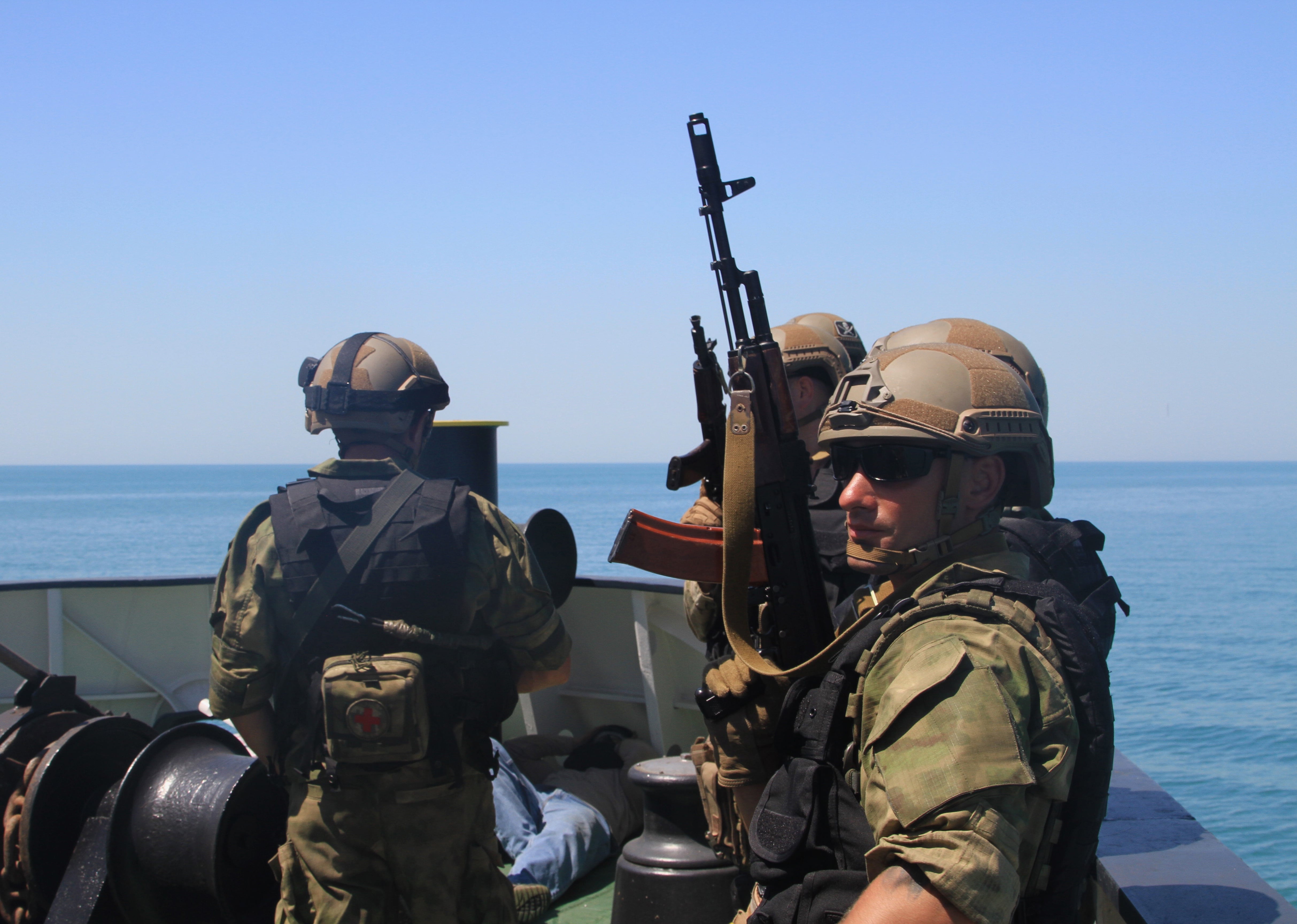WASHINGTON — President Donald Trump has said he withheld nearly $400 million in military aid from Ukraine because of corruption in the country, but recently released Pentagon documents undercut that explanation and add fuel to the whistleblower complaint that has launched an impeachment inquiry in Congress.
Democrats in the House on Friday demanded answers on what prompted the Trump administration to place a hold on the military aid, which was needed to fight Russia-backed separatists in eastern Ukraine, even as the president was pressing the Ukrainian government to investigate the son of former Vice President Joe Biden.
The Pentagon documents reflect its own assessment that Ukraine was making progress on anti-corruption efforts.
The package of arms and equipment, which eventually was released earlier this month under congressional pressure, is now at the center of a House impeachment inquiry into whether Trump withheld the money and weapons this summer in a bid to gain political advantage over Biden.
RELATED

Defense Secretary Mark Esper told reporters at the Pentagon that he would give Congress whatever information he can on the matter. But he has declined to provide details on the administration’s decision to hold up assistance that had enjoyed bi-partisan support.
Trump denies putting a hold on the aid because of 2020 politics, and initially said this week he had concerns about corruption in Ukraine, a U.S. priority for years.
However, the Pentagon in May officially certified that it had seen enough anti-corruption progress to justify releasing the congressionally authorized aid, according to documents provided to The Associated Press.
The defense undersecretary for policy, John Rood, wrote in a May 23 letter to Congress that the Pentagon had made a thorough assessment of Ukraine’s anti-corruption actions and other reforms.
“On behalf of the secretary of defense, and in coordination with the secretary of state, I have certified that the government of Ukraine has taken substantial actions to make defense institutional reforms for the purpose of decreasing corruption” and making other improvements, Rood wrote.
Rood wrote that his certification, legally required before the aid could be released, was based on insights gained in “persistent U.S. engagement” with Ukraine, including meetings between the U.S. defense secretary and his Ukrainian counterpart.
Members of Congress are seeking to examine the apparent contradiction between the Pentagon’s assessment and the subsequent White House decision to put the aid on hold.
The chairs of the Appropriations and Budget committee made the request in a letter to Acting White House Chief of Staff Mick Mulvaney and budget director Russell Vought.
Appropriations Chairwoman Nita Lowey, D-N.Y., and Budget Chairman John Yarmuth, D-Ky., wrote that they have “serious concerns that recent apportionment actions by the Office of Management and Budget (OMB) to withhold military aid for Ukraine and other foreign assistance constitute unlawful impoundments” and “are an abuse of the authority provided to the President” to distribute funds appropriated by Congress.
The pair wants to know exactly when the White House instructed agencies to hold back the Ukrainian aid and whether there was in fact an “interagency process” involved in the decision. The whistleblower has said that Trump in July had issued an order to suspend the delivery of $250 million in Pentagon aid and $141 million in State Department funds but that the White House had not given an explanation.
White House budget spokeswoman Rachel Semmel responded that her office “has clear legal authorities to help ensure that agencies spend funds consistent with the law and the president’s priorities, and all actions taken under this administration were clearly within those authorities.”
But a group of Democratic senators is also asking questions of the Pentagon. Led by Patrick Leahy of Vermont and Dick Durbin of Illinois, they wrote the Pentagon’s acting inspector general to review the delay in Ukraine funding. The Defense Department has already acknowledged it was ordered by OMB at the direction of the White House.
“The delay would appear to have hindered the department’s statutory obligation to provide security assistance to Ukraine at a critical moment, and raises serious questions about whether DoD officials were involved in any scheme to target a political opponent,” the senators wrote to Acting Inspector General Glenn Fine.
Asked about the aid on Friday, Esper said that at no time did the delay affect U.S. national security. When asked earlier in the week about the apparent disagreement between the Pentagon and the White House over whether corruption justified delaying the assistance, Esper said, “I wouldn’t characterize it that way.” He declined to discuss it in detail.
It’s unclear exactly when the Pentagon was told to stop its plan to disburse the aid. Officials had publicly announced on June 18 that the aid was going ahead. The assistance was cast as a reaffirmation of a decades-old defense relationship with Ukraine, which is part of Europe and became an independent country after the breakup of the Soviet Union in 1991.
Rood, in his letter, noted that “there remain areas that require significant attention” by Ukraine, and that the United States remains committed to helping its “multi-year effort,” suggesting that fighting corruption was seen as a long-term project.
He had notified Congress in February that the Pentagon was going ahead with the first $125 million in security assistance. By law, certification of Ukraine’s progress against corruption and in defense reforms was required before the second $125 million in aid could be provided.





